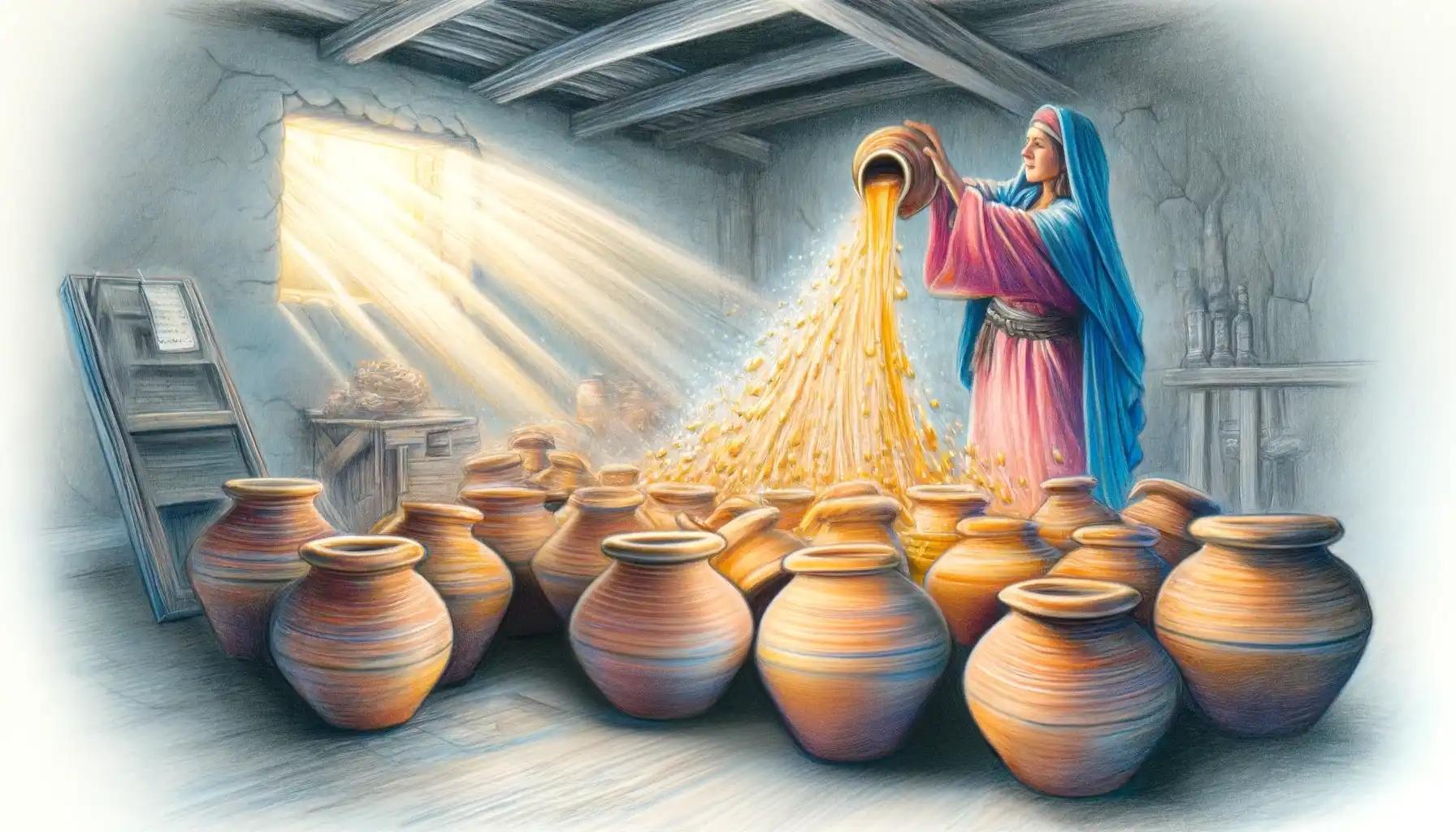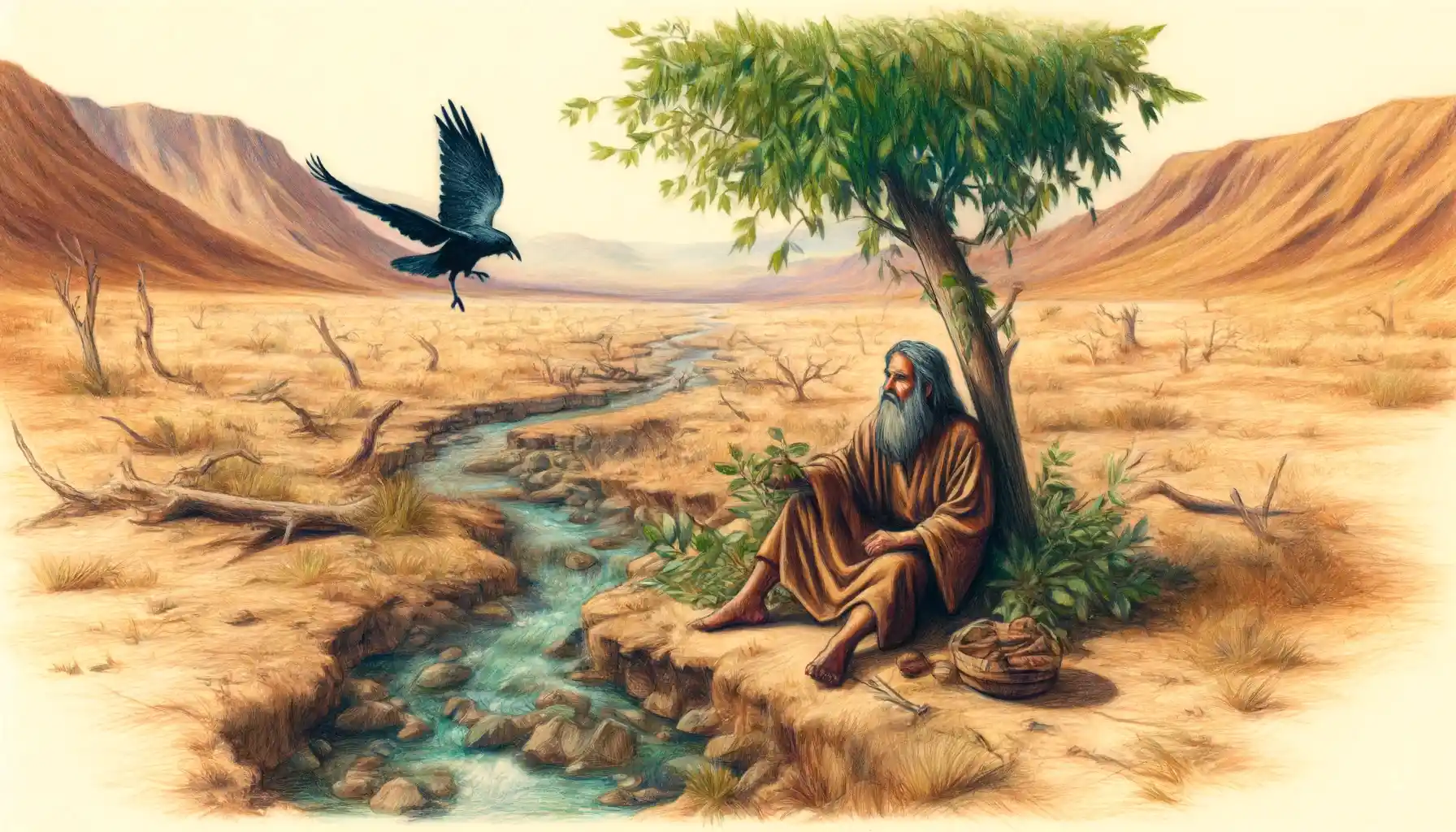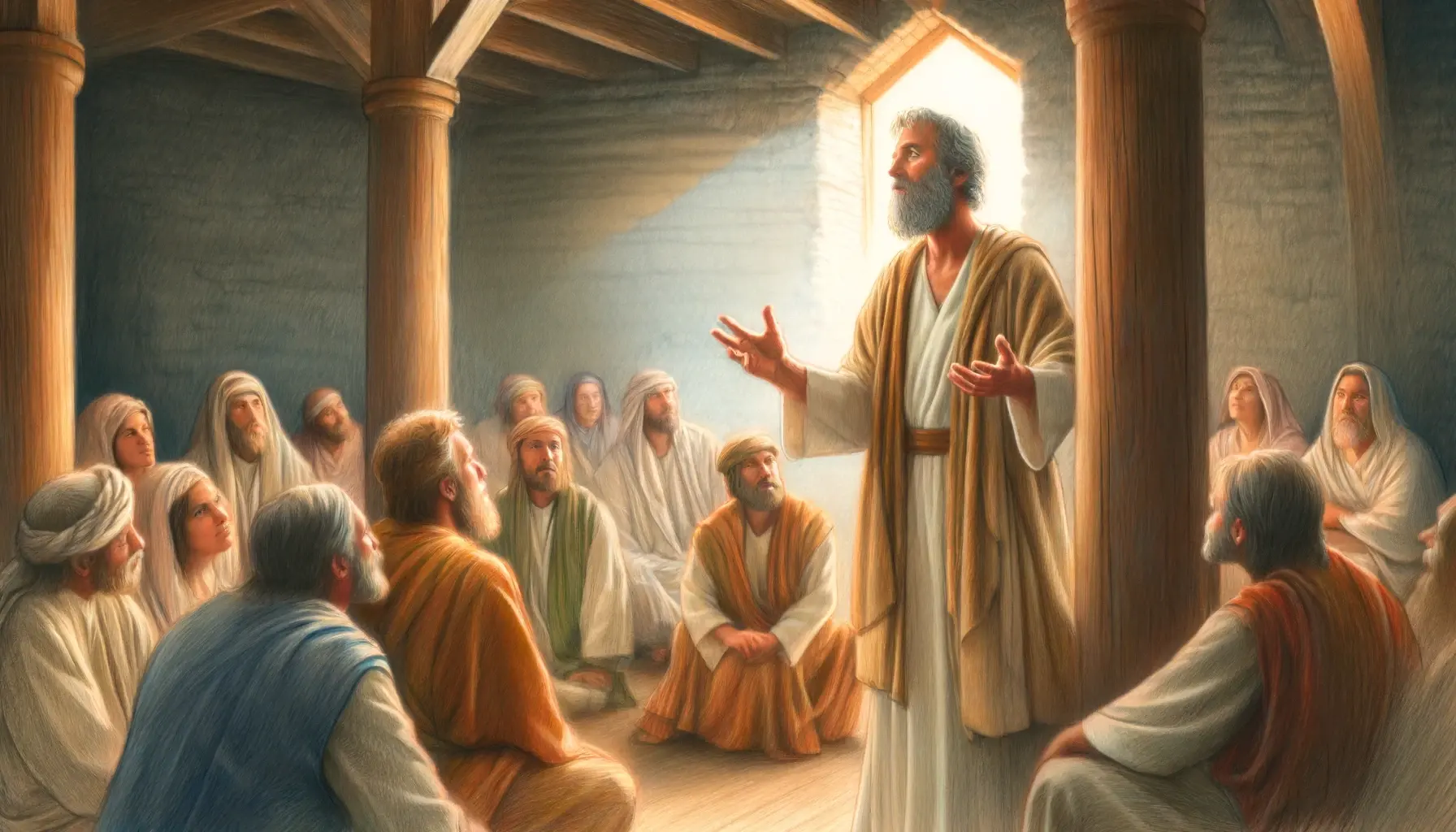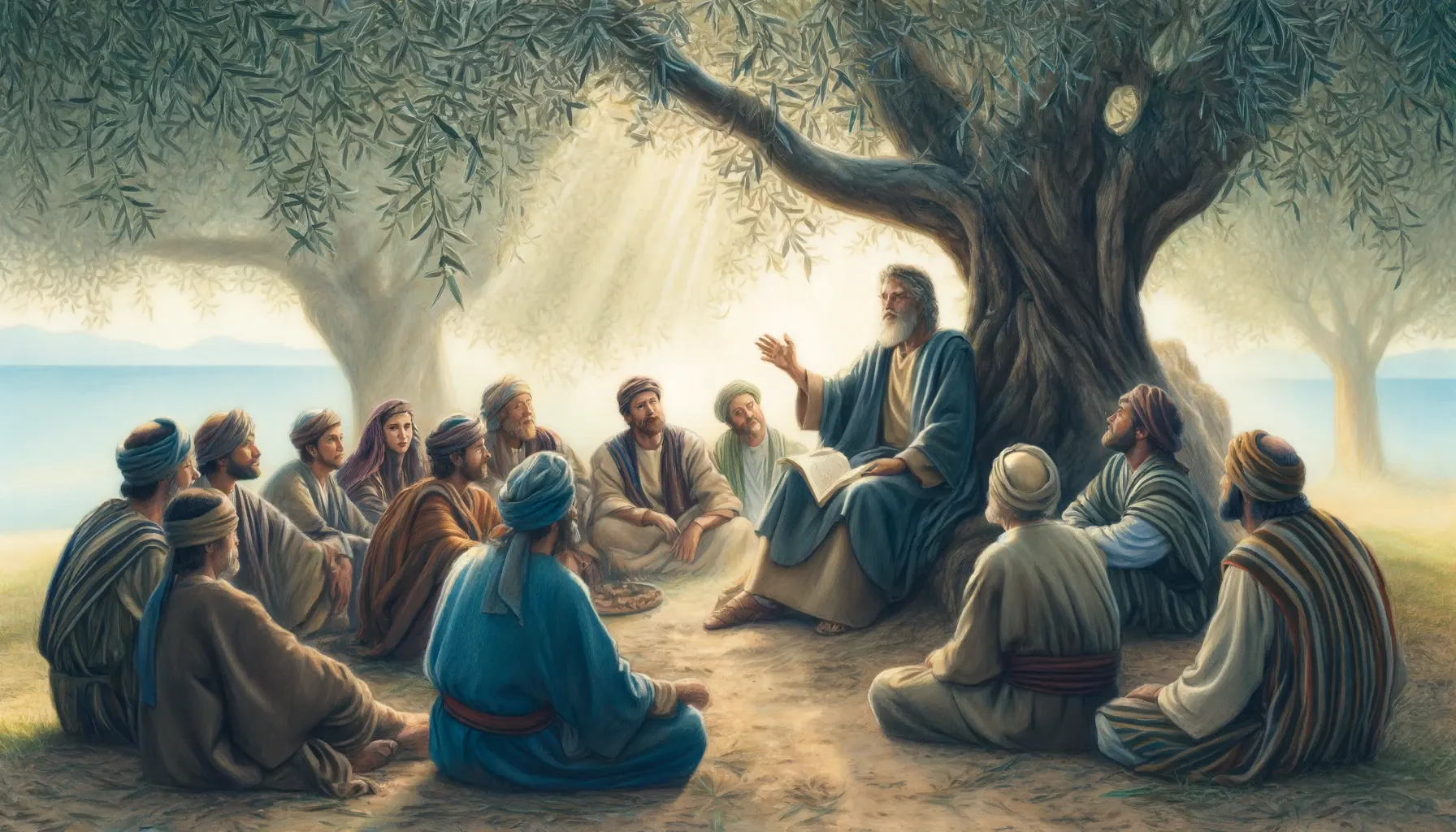In 2 Kings 4:1-7, the narrative of the Widow’s Oil Multiplied showcases Elisha’s prophetic intervention as he instructs a desperate widow to multiply a small jar of oil by faith and obedience, thereby enabling her to pay off her debts and protect her family from slavery, illustrating God’s miraculous provision and care for the needy.
In 1 Kings 17:4-6, God miraculously sustains the prophet Elijah during a severe drought by commanding ravens to deliver him bread and meat twice daily while he remains hidden beside the Brook Cherith.
The Book of 1 John emphasizes the themes of love, fellowship, and assurance of salvation, calling believers to walk in the light of Christ, to love one another, and to abide in Him, while also providing tests of authentic faith and affirming the centrality of God’s love in the Christian life.
The Book of James emphasizes the inseparable relationship between genuine faith and practical works, urging believers to demonstrate their faith through righteous living and compassionate actions towards others.
The Book of Jonah remains a deeply symbolic text that explores themes of repentance, divine mercy, and the sometimes uncomfortable breadth of God’s grace.
1 Samuel provides a rich narrative that not only recounts historical events but also offers profound lessons on leadership, obedience, and the complex interactions between divine providence and human agency.
Joshua, the successor of Moses, exemplified unwavering faith and obedience to God as he led the Israelites in the conquest of Canaan, fulfilling divine promises and establishing a legacy of leadership grounded in commitment to God’s commandments.
The baptism of Jesus in the Jordan River by John the Baptist, as detailed in Matthew 3:13-17, encompasses profound theological themes such as obedience, righteousness, the revelation of the Trinity, the affirmation of Jesus’ messianic identity, and the foundational principles of Christian baptism, making it a cornerstone event in Christian theology and the initiation of Jesus’ public ministry.
The story of Balaam and the speaking donkey from the Book of Numbers explores themes of prophecy, obedience, divine sovereignty versus human free will, God’s protective care for His people, messianic predictions, and the instrumentality of creation within Christian theology.









